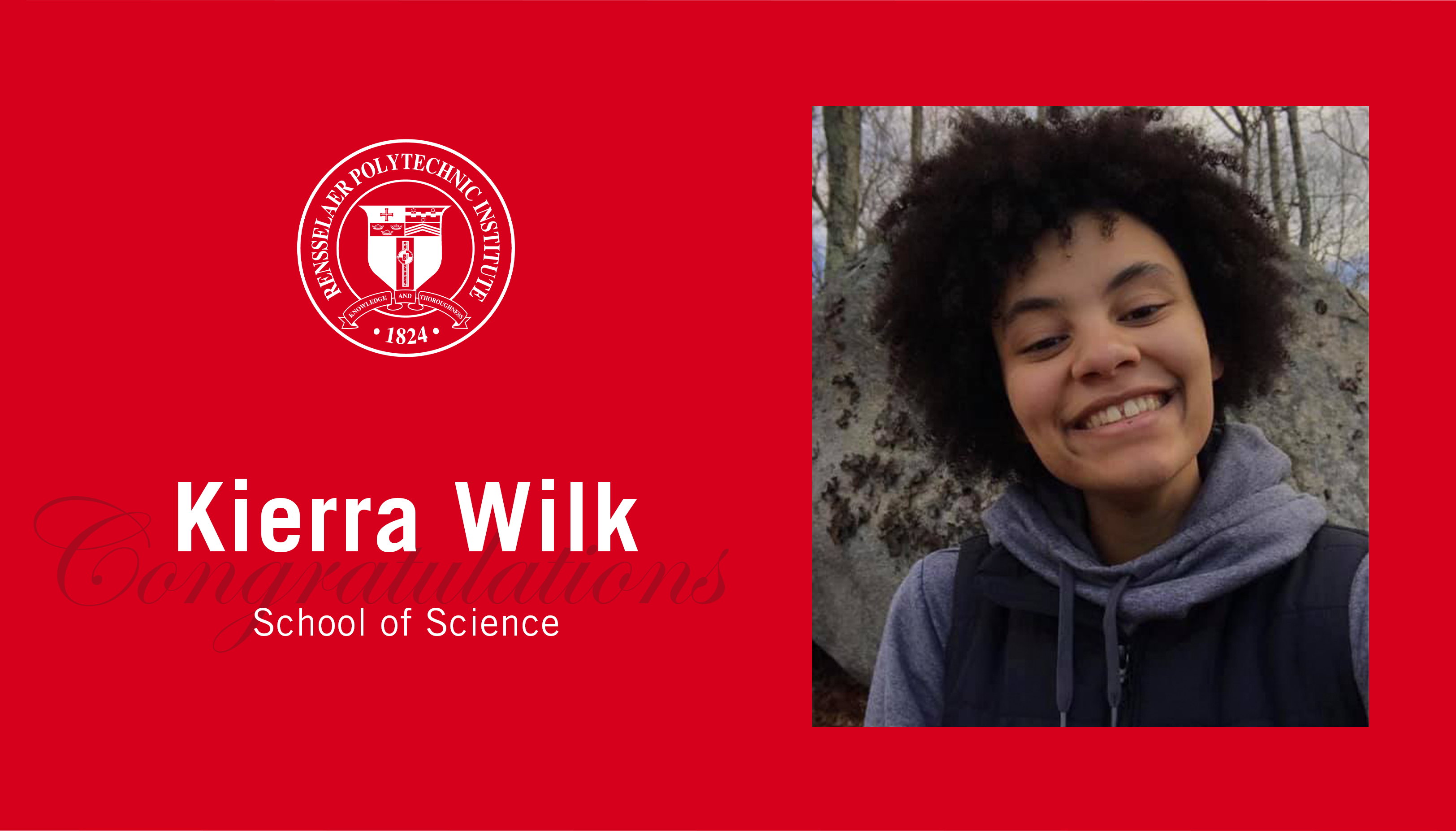Kierra Wilk wasn’t sure she would attend Rensselaer Polytechnic Institute (RPI) when she visited campus, but she fell in love with the Earth and Environmental Sciences (E&ES) department. “Ultimately, I chose RPI because, after talking to the students, I felt like I belonged and that RPI was the place I wanted to spend the next four years of my education,” she said.
Wilk intended to pursue a degree in chemistry, but after meeting with faculty in E&ES and learning about the interdisciplinary nature of geology, she changed her major. “During my first semester freshman year, I took a geobiology class that focused on the co-evolution of early Earth and life, and I became fascinated thinking about early Earth environments and their relation to the origins of life and habitability.”
For the past three years, in addition to her studies, she served as an ambassador with the Rensselaer Science Ambassadors, an outreach program exploring the role of science with K-12 students in the local area. Science ambassadors visit classrooms to promote STEM careers and Wilk said that joining was instrumental in helping her gain stronger science and leadership communication skills, as well as learn how to run an effective outreach program.
Wilk served as a school visit coordinator her junior year and was president of the group her senior year. The most important part for her was the role she played when she entered a classroom. “Most notably, as a first-generation college student and woman of color, every time I stepped in front of a classroom, I had the opportunity to provide students an ‘alternative’ image as to what it looks like to be a scientist.” She said joining Science Ambassadors was one of the best decisions she made and it continued to fuel her passion for expanding representation in the sciences.
Last summer, Wilk was accepted to the SETI Institute Research Experience for Undergraduates (REU) program. Her research project was looking at an aqueous outcrop at Ius Chasma, Mars, using data collected by the Compact Reconnaissance Imaging Spectrometer for Mars. She won the SETI Institute REU Award of Excellence, second place for her poster presentation at the National Association of Black Geoscientists, and an honorable mention for the Dwornik Award at the Lunar and Planetary Science Conference. She also was able to attend three virtual conferences.
This summer, she will start another virtual internship, this time at NASA’s Goddard Space Flight Center doing geologic mapping of Jupiter’s moon, Europa, before starting a Ph.D. program in planetary science at Brown.
Wilk said the greatest lesson she learned at Rensselaer was not to be afraid to ask for help. She learned quickly in her first semester that college-level academics were rigorous and she struggled with understanding the material. Rather than continuing to struggle on her own, she began going to the Advising and Learning Assistance Center and professors’ office hours. “Sure enough, by the end of the semester, my hard work started paying off and my grades drastically improved,” she said. She learned that asking for help when needed wasn’t a sign of weakness, but rather speaks to her determination to succeed.
“If there is one thing I learned over this past year, it’s that regardless of the circumstances, life will continue to move on and your ability to adapt and make the best of a bad situation is key,” she explained.


